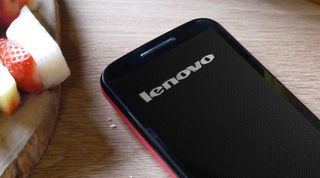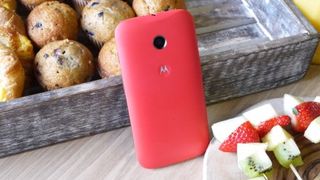Hello Moto: The true story behind Lenovo's big buy
Lenovo was in talks with Google from the very beginning

The news that Lenovo had snapped up Motorola Mobility for $2.1 billion earlier in the year was met with a number of questions.
The first: why is Google selling this part of Motorola for a fraction of what it had spent on the whole company, given it bought it for $12.5 billion?
Then there was the confusion over what was actually bought - which patents went to Lenovo and what did Google retain?
TechRadar went to Lenovo's headquarters in Beijing to learn a little more about this extraordinary deal and found out that it began with one inquisitive phone call soon after Google had announced it had brought Motorola under its wing.
"We first approached Motorola when Google initially announced the acquisition," said Liu Jun, executive vice president of mobile for Lenovo.
"We knew that Google was the owner of Android and felt that it may not want the hardware side of the business."
Lenovo quite rightly assumed that Google had bought Motorola purely for its patents, so decided to show its interest in the hardware side just in case a sell-off was on the cards.
Get daily insight, inspiration and deals in your inbox
Get the hottest deals available in your inbox plus news, reviews, opinion, analysis and more from the TechRadar team.
"To us, it was clear that Google wanted to own the IPs," said Jun, "so we thought we had an opportunity to own the hardware side."
This was when the initial phone call was made, as Jun explained: "We approached Google - Eric Schmidt and Andy Rubin - and there was a lot of discussion but then Google eventually decided to try to do hardware by itself."
Back to the start
Google then spent over a year figuring out a way to make the hardware manufacturing and selling side of Motorola work for them. But in the end it wasn't to be, so Google went back to the one company that contacted them at the time of its Moto takeover.
"A year-and-a-half later Google reconsidered its strategy and at the end of 2013 we got a call from Google, from Eric Schmidt. We were asked if we still had the interest in the company and we did."
Jun explained that Lenovo was so keen to get Motorola, the takeover - in big business terms - was a quick one.
"We always thought Motorola was a good buy so we said yes to Schmidt and it took just three to four months to sign the contract."
Although the acquisition has yet to go through - Lenovo is hoping that in the next three months it will be official - there has already been some thought as to how Motorola will operate within Lenovo.

This did mean that all conversations we had were punctuated with 'we can't confirm until the deal has been done' but Lenovo has revealed that it is hoping to expand the research and development side of Motorola. This is an interesting move as it is one place Google cut straight away when it bought the company.
"After Google acquired Motorola they closed a lot of R&D departments and now they just have places in Chicago and Cincinnati," explained Jun.
"We don't think this is right. After we take over, this will change as for us the research and development is one of the most valuable assets. We will maintain the current R&D team, expand these teams and set up new sites elsewhere in the company."
Brand identity
As for which countries will get the Motorola brand and which ones will have Lenovo, don't expect massive changes here. Lenovo is looking to keep using the strongest brand in each territory.
Aymer de Lencquesaing, senior vice president of Lenovo, told us: "When we buy Motorola what we are getting is a brand with a lot of resonance in phones. Lenovo is a strong brand but one that isn't yet associated with smartphones worldwide, Motorola definitely is.
"In some markets we will use one brand or the other and in other markets both. All permutations are possible."
To get more of an idea as to how this works, think Thinkpad. When Lenovo bought IBM's personal computer division in 2005 it retained the ThinkPad name and continued to use it where it had resonance.
"IBM has legacy in China so we have both the Lenovo and the ThinkPad business," explained Chen Xudong, SVP and president of Lenovo China.
"We have a good market share in both brands so we have positioned these product lines and kept this legacy. We will have a similar strategy to this with Motorola."
Brand is all very well but what Lenovo got was a lot of "competitive IP". The deal means it will have 2,000 out of the 12,000 patent haul Google bought with Motorola. These will be added to the 6,500 patents Lenovo already owns.
It will also get lifelong support from Google on any patents left behind so it won't have any legal barriers when innovating in the future.
And then there is the fact that Lenovo Motorola is also Lenovo's golden ticket into countries it hasn't managed to quite crack yet - the mature markets of America and western Europe.
This is something that Xudong believes will make Lenovo a true force in the mobile space.
"With Motorola on board, we are very confident that we now have the strength to take on Apple and Samsung."
Marc Chacksfield is the Editor In Chief, Shortlist.com at DC Thomson. He started out life as a movie writer for numerous (now defunct) magazines and soon found himself online - editing a gaggle of gadget sites, including TechRadar, Digital Camera World and Tom's Guide UK. At Shortlist you'll find him mostly writing about movies and tech, so no change there then.

